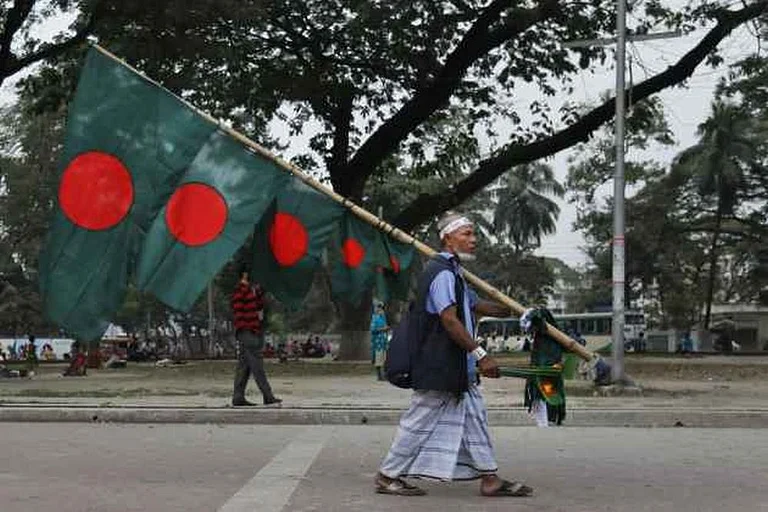The International Court of Justice (ICJ) will soon schedule public hearings as South Africa files “genocide” case against Israel. South Africa on Friday moved the ICJ accusing Israel of engaging in “genocidal acts” amid Israel’s ongoing war on Gaza, where casualties have exceeded 22,000 with no end in sight.
In a post shared on X, The Presidency of South Africa said, “South Africa is gravely concerned with the plight of civilians caught in the present Israeli attacks on the Gaza Strip due to the indiscriminate use of force and forcible removal of inhabitants.”
Israel rejected the allegations with “disgust” in a statement by the Israel foreign ministry.
The move by the African nation comes after five countries, including South Africa, approached the International Criminal Court in November, referring the “Situation in the State of Palestine” to the ICC.
Which countries have approached the ICC?
The International Criminal Court in a statement revealed South Africa, Bangladesh, Bolivia, Comoros, and Djibouti had approached the court in November last year, urging an investigation into the ongoing war.
Prosecutor of ICC Karim Khan acknowledged the receipt of the referral and said, “In receiving the referral, my office confirms that it is presently conducting an investigation into the situation in the State of Palestine. This investigation, commenced on March 3, 2021, encompasses conduct that may amount to Rome Statute crimes committed since 13 June 2014 in Gaza and the West Bank, including East Jerusalem.”
He confirmed the ongoing investigation extended to the escalation of hostilities and violence since the attacks that took place on October 7 2023.
“As I stated in my recent visit to Rafah Crossing, pursuant to its mandate, this Unified Team is moving with focus in collecting, preserving and analysing information and communications from key stakeholders in relation to relevant incidents,” he said in a statement.
The five countries’ stance in the ongoing war on Gaza
South Africa
South Africa has consistently shown support for Palestine, denouncing Israel's actions since the beginning of the conflict. In October, President Cyril Ramaphosa publicly declared solidarity with Palestine, holding a Palestinian flag and donning a keffiyeh. He stated, "All of us standing here pledge our solidarity with the people of Palestine."
There has also been a vote in the parliament in favour of closing the Israeli embassy and withdrawing diplomatic staff from Israel.
The foundation of South Africa's support for Palestine lies in a shared history of discrimination and disempowerment. Similar to Palestine, South Africa has grappled with struggles against colonialism and apartheid.
Bangladesh
On November 17, the same day when the five countries moved the ICC, Bangladesh PM Sheikh Hasina called on global leaders to put an end to the war in a virtual address at a two-day summit hosted by Narendra Modi.
The Bangladesh premier particularly expressed her profound concern at the “tragic, inhuman existence of the hapless Palestinians in the face of merciless carnage” and said: “It is time for all of us to unite as one world and demand the end of the conflict”, according to PTI.
Bangladesh has also condemned Israel on multiple occasions including when Israeli forces started bombing hospitals and shelters.
“We denounce the recent storming of civilian healthcare centres like Al-Shifa Medical Hospital and Jordanian Field Hospital in besieged Gaza by the Israeli Occupied Forces,” the Bangladesh foreign ministry said in a press release on November 18.
“Targeting hospitals and medical personnel intentionally, under any circumstances is totally unacceptable. The assault on Jordanian hospital and the resultant injuries of its medical personnel is a case in point of Israel's total disregard for international humanitarian laws and accords.”
Bolivia
On October 30, 2023, Bolivia took a significant step by severing diplomatic ties with Israel, accusing it of committing "crimes against humanity" in Gaza.
The decision was announced by Freddy Mamani, Bolivia’s deputy foreign minister, who expressed repudiation and condemnation for what was described as an aggressive and disproportionate Israeli military offensive in the Gaza Strip.
The move prompted similar actions from Colombia and Chile, both of which recalled their diplomats from Israel on the same day.
Analysts noted that these acts of censure from Latin American nations conveyed a powerful signal, considering the region's historically close, albeit sometimes tense, ties with Israel, Al Jazeera reported.
Comoros
Comoros, along with several other African nations, does not recognise the state of Israel and maintains no diplomatic relations with the country. Despite past attempts to improve ties, the relationship remains strained. The ongoing conflict has further exacerbated tensions, as a majority of African nations, including Comoros, have expressed support for Palestine.
Comoros President Azali Assoumani, who is also the current African Union chair, publicly condemned the actions in Gaza in November and expressed concern over the disproportionate response.
“We condemn all measures, all actions, everything that harms children, and that then leads to extremism when they experience something like that.”
Djibouti
Djibouti has on several occasions expressed their support for Palestine, citing continuous aggression and violations of Palestinian rights.
The country has reiterated its unwavering support for the aspirations of the Palestinian people and has urgently called on the international community to intervene and facilitate a ceasefire.


























